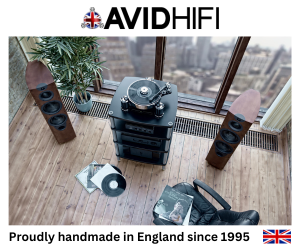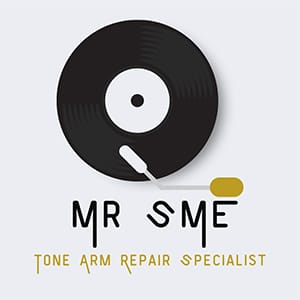Whether it’s because they break from tradition or challenge the hifi norm that the more separates you have the better, there are some genres of hifi kit that don’t perhaps get the recognition they deserve.
Active speakers are very much in this camp. With their roots stemming more from pro than domestic audio origins, they are in many ways the unsung heroes of the hifi industry. As well as saving on box count (as you’re effectively getting a speaker and built-in mono block power amp within a single carcass) they also make a solid case for themselves on audio grounds. After all, our goal is assembling the kit that works best together to provide a musical synergy that’s seemingly greater than the sum of its parts. And the role of a power amp is simple, to correctly drive its partnering loudspeaker(s). So it makes complete sense for a manufacturer to design and manufacture its own dedicated power amp into its speakers, to ensure an ideal match.

Proudly purposeful, ATC’s SCM40A are beautifully proportioned and come in cherry or black ash wood veneers, with satin black and white painted options also available
This of course also takes years of knowhow to get right, and the Acoustic Transducer Company (or ATC to you and me) has plenty of it, with a product portfolio spread across pro and consumer ranges that extends into the top tiers of hi-end territory.
Keep it in the family
The SCM40A on test here is the flagship model in ATC’s Entry series, with the ‘A’ denoting this as the active version of the passive SCM40 model, with the latter foregoing internal power amps for a price tag of £3,990.
Both models feature the same sealed lusciously curved cabinets made from 18mm of braced MDF. To achieve the curve, the side panels are laminated up from three individual layers of 6mm MDF to provide greater stiffness and damping. As well as being easier on the modern eye than square boxes, curved sides also help to minimise parallel surfaces and therefore internal standing waves.
The SCM40A’s air-moving hardware is also the same as its passive brethren, sporting a three-way design made up of a 25mm soft dome tweeter with precision alloy wave guide and a 75mm variant of ATC’s instantly recognisable large soft dome midrange drive unit. A 164mm short coil bass driver continues the visual theme with a massive central dust cap. All units are made in house and incorporate huge motor assemblies to ensure they can handle whatever signal is thrown at them without worry. On the eye the bass driver seems bigger, as 164mm is measured from the centre of its rubber surround, unlike many manufactures that measure from the edge of the surround to make the numbers look big, but drivers appear small.

Viewed from above, the SCM40As’ curved cabinets soften their visual lines while helping to reduce internal standing waves
At £7,400 the extra outlay needed for the SCM40A models buys you a dedicated 242W Class AB triamplifier nestled within each speaker, that’s separated into 32W for the tweeter, 60W for the midrange and 150W for the bass driver. And when you think about the real world cost of buying dedicated monoblock amps (and three per channel if you were tri-amping), the SCM40A’s price tag becomes easily justifiable. What’s more these aren’t just any old amps hiding inside, they’re ATC’s own with two MOSFET transistors per channel which equates to four identical output stages fed by three separate secondary power supplies to ‘scale’ the power according to the frequency band and driver demands. The active crossovers are fourth order Linkwitz-Riley types with additional all-pass filters at the two crossover points.
Our demo models came delivered in dedicated flight cases on wheels like they’d rolled off a tour bus, and it’s a good job they did, as at 36kg per speaker, these are no lightweights.
Built for business
Unpacked and standing at 980mm tall by 370mm wide, they cut a figure that’s refreshingly proportionate. In an age where most speaker manufacturers strive for slimline models to suit the trends of the times, it’s refreshing to see ATC makes loudspeakers that are designed to look like loudspeakers. The SCM40A is a wider speaker than most rivals’ offerings, and looks all the better for it.

Industrial looking steel mesh speaker grille offers maximum protection from foreign objects and means you still get to see the air moving hardware when in place. They won’t keep the dust out though
Their steel mesh magnetic grilles hint at ATC’s studio origins and will outlast the typical fabric offerings of ATC’s rivals while allowing greater airflow from their generously sized drive units.
Being active models, means you don’t need speaker cable but you still need mains to power each speaker’s amp and (ideally balanced) audio leads, terminated with XLR plugs.

Viewed side on, note each power amp’s heatsinking and protective pins on their rear panels
Performance
Fed from the balanced outputs of my Musical Fidelity M6 preamplifier via Van Damme Tour Grade cables with Nuetrik connectors, the ATCs take no time to get up and running. Simply install the spikes or add your own pads (I opt for the latter), connect up and switch on.
Fed from my preamp it’s clear the ATCs’ internal amps have plenty of muscle on tap and take little driving. The MF churns out a healthy 19Vrms over XLR, which means the volume needs little dialling up to get the ATCs filling my 6x4m listening room with ease. While not sensitive to positioning, spaced around 2.5m apart and firing from the longer axis with a few degrees of toe-in strikes the best balance of stereo imaging, soundstage and instrument separation in my room, arrived at after a few weeks of running in and experimentation.

Sealed cabinet means no bass porting for greater lower frequency control
Iron grip
While it may seem predictable to reach for the reviewer’s go to test track of London Gramma’s Hey Now, streamed at 24-bit/44kHz from Qobuz via my Primare NP30 into the MF amp, the song’s subsonic frequencies are a worthwhile challenge for any speaker for how it copes (or not) with reaching lower than their comfort zone while still maintaining control. And control is what the ATCs have in abundance. While those big bass drivers have no issue pinning me to my seat, it’s the stop start quality of the lower notes that makes me sit up and take notice. There seems to be a complete absence of overhang or blurring that can come with ported or less inert cabinets. Instead the ATCs are geared to deliver the lower notes as intended, and add nothing else, which is exactly as the artist or engineer intended.
Midrange and treble are just as articulate and well voiced. Previous generations of ATC were sometimes labelled as dry or over articulate sounding, and the SCM40A quite rightly challenges this preconception. Sure its sound is unapologetically accurate but the balance it brings makes it exceptionally neutral, without sounding voiced in a given direction or favouring any particular type of music or genre.

Rear electronics panel hosts on/off switch, mains and XLR inputs
Even handed
With a 1979 pressing of Debussy’s Images For Orchestra on my VPI Scout 21‘s platter the music flowing forth from the ATCs sounds full of scale, detail and impact, revealing layers of drama I’ve missed with some speakers that cannot muster the same levels of realism across the frequency band with equal focus and weight as the SCM40A.
Vocals are just as deliciously rendered. With Aldous Harding’s Horizon track from her Party LP, the ATCs reproduce her voice with a gorgeous richness that’s full of body and sounds arrestingly edgy when needed, showcasing how she changes the track’s mood to challenge the listener, which is reinforced by John Parish’s backing vocals that are equally well formed. In a nutshell, with the ATCs Harding’s performance and intention is effortlessly captured.

Outrigger feet at the front of each speaker provide extra stability and accept M8 threaded spikes (supplied), although we fitted acoustic soft pads to protect our floor
And this underlines what the ATC active package does so well, by presenting the music as a holistic whole that allows them to aurally vanish into the soundstage. With a 16/44 rip of James’s The Lake track fed from my NAS drive the music takes on a hairs on the back of the neck quality, despite the standard resolution file format. Everything is intricately placed in the mix, allowing the percussion to gather centre stage, as the guitar riffs swirl and Tim Booth’s vocals take charge. Nothing feels neglected and nor does the music sound forced or forward, you’re simply taken into the mix.
While ATCs can clearly handle music with maturity, this doesn’t mean they’re lacking in energy to get your feet tapping too. With Yard Act’s Fixer Upper at 24/44 via Qobuz the ATCs render the percussion with enough punch that they could floor a horse, while the bass line bounces along like Bez on Redbull. The speed of the track and overlapping vocals are also no issue for these speakers which seem to revel in keeping up with the track with plenty in reserve.
In summary
The ATC40A is a superb speaker package that more than delivers against its promise of musical synergy thanks to its carefully matched internal amps and loudspeaker hardware. They are an exceptionally transparent performer and partnered with a preamp and source components of equal quality, you’ll not be left wanting.













